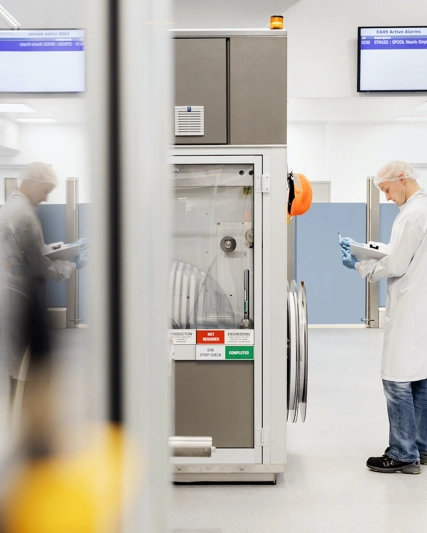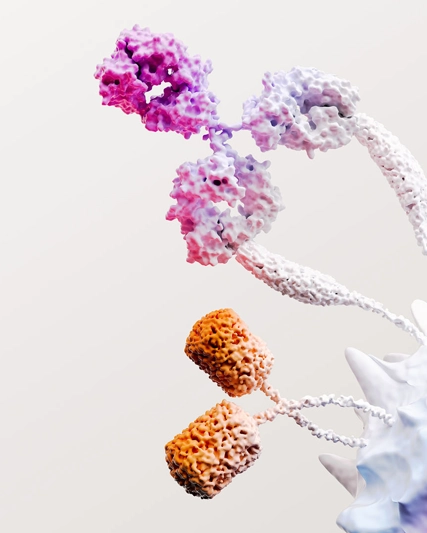Issued: London, UK
For media and investors only
GSK receives US FDA Fast Track designation for investigational vaccine against gonorrhoea
- Fast Track designation accelerates the vaccine candidate’s path to US FDA submission for the prevention of Neisseria gonorrhoeae infection
- Gonorrhoea is the second most prevalent bacterial sexually transmitted infection worldwide with an estimated 82 million new cases globally each year1,2
- Currently there are no vaccines approved anywhere in the world for gonorrhoea, and antimicrobial resistance to existing treatments is increasing2
GSK plc (LSE/NYSE: GSK) announced today the US Food and Drug Administration (FDA) has granted a Fast Track designation for its Neisseria gonorrhoeae investigational vaccine (NgG). The vaccine candidate is currently in an ongoing Phase II trial and aims to demonstrate proof of concept by assessing the efficacy of the NgG vaccine in healthy adults, 18 to 50 years of age, considered at risk of gonorrhoea. Fast Track designation is intended to facilitate the development and expedite the review of potentially important new drugs and vaccines to treat or prevent serious conditions with unmet medical needs.
Gonorrhoea is the second most prevalent bacterial sexually transmitted infection (STI) worldwide1, with an estimated 82 million new cases globally each year.2 In the US, rates of reported gonorrhoea have increased 118% from 2009 to 2021, resulting in 710,151 cases being reported to the US Centers for Disease Control and Prevention (CDC) in 2021.3
Phil Dormitzer, Global Head of Vaccines R&D, GSK, said: “We welcome the FDA's decision to grant Fast Track designation for our new vaccine candidate against Neisseria gonorrhoeae infection. With a high and growing incidence, gonorrhoea is a major concern for sexual and reproductive health around the globe. This designation recognises the potential for a vaccine that could help protect millions of people across the world against the serious health consequences of infection with a bacterium that is considered a ‘high priority’ pathogen by the World Health Organisation.”
Antimicrobial resistance (AMR) to gonorrhoea has increased over the past 80 years, rendering many classes of antibiotics used to treat the disease ineffective.2 Vaccines can play a critical role in the fight against AMR by helping prevent bacterial, viral and other infections. At this time, there are no gonorrhoea vaccines approved anywhere in the world.4
About the Phase I/II trial
The trial conducted by GSK is a Phase I/II first time in human study (FTiH) evaluating the vaccine candidate’s safety and efficacy in individuals aged 18-50 years old, regardless of previous gonorrhoea history. Phase I of the study was a FTiH dose-escalation safety lead-in conducted in healthy adults and is now complete. Phase II of the study is ongoing and aims to demonstrate Proof of Concept by assessing the efficacy of the NgG vaccine in healthy adults considered at risk of gonorrhoea. The trial started in November 2022, and approximately 750 subjects will be enrolled from 8 countries (US, UK, France, Germany, Spain, Brazil, Philippines, South Africa).
About Gonorrhoea
Gonorrhoea is a sexually transmitted infection (STI) caused by a bacterium called Neisseria gonorrhoeae (Ng). It is recognised as an urgent unmet medical need due to its growing global incidence and reduced efficacy of available treatments as drug-resistant strains are increasing.2 Ng infection in women is often asymptomatic and under-diagnosed. When left untreated, Ng infection can lead to complications and long-term consequences such as pelvic inflammatory disease, infertility, ectopic pregnancy, and adverse pregnancy outcomes.4 Painful symptoms in men make gonorrhoea more likely to be diagnosed,5 but stigma surrounding the disease is still a barrier to seeking diagnosis and treatment. It has also been shown that Ng infections may also increase the risks of acquiring or transmitting HIV.5,6
About GSK
GSK is a global biopharma company with a purpose to unite science, technology, and talent to get ahead of disease together. Find out more at gsk.com/company.
Cautionary statement regarding forward-looking statements
GSK cautions investors that any forward-looking statements or projections made by GSK, including those made in this announcement, are subject to risks and uncertainties that may cause actual results to differ materially from those projected. Such factors include, but are not limited to, those described under Item 3.D 'Risk factors” in the company's Annual Report on Form 20-F for 2022, and Q1 Results for 2023 and any impacts of the COVID-19 pandemic.
References
- [1] Rowley et al. Chlamydia, gonorrhoea, trichomoniasis and syphilis: global prevalence and incidence estimates, 2016. Bull World Health Organ. 2019 1;97(8):548-562. doi: 10.2471/BLT.18.228486.
- [2] WHO. Multi-drug resistant gonorrhoea. Available at: https://www.who.int/news-room/fact-sheets/detail/multi-drug-resistant-gonorrhoea2022. Accessed June 2023.
- [3] CDC. Sexually Transmitted Disease Surveillance. Available at: https://www.cdc.gov/std/statistics/2021/figures.htm. Accessed June 2023.
- [4] Gottlieb S et al. Gonococcal vaccines: Public health value and preferred product characteristics; report of a WHO global stakeholder consultation, January 2019. Vaccine. 9;38(28):4362-4373. doi: 10.1016/j.vaccine.2020.02.073.
- [5] Fleming DT et al. From epidemiological synergy to public health policy and practice: the contribution of other sexually transmitted diseases to sexual transmission of HIV infection. Sex Transm Infect. 1999 75(1)3-17. doi: 10.1136/sti.75.1.3.
- [6] Bernstein K et al. Rectal gonorrhoea and chlamydia reinfection is associated with increased risk of HIV seroconversion. J Acquir Immune Defic Syndr. 2010 1;53(4):537-43. doi: 10.1097/QAI.0b013e3181c3ef29.


